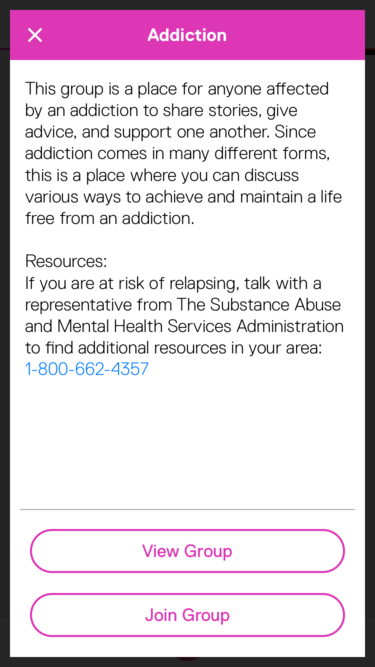Peer-to-peer support is the model of 12 Step recovery. And it works. So well, in fact, that practically every method of addiction recovery has been designed around that model. Since the 1930’s, Americans have been coming together to share their experience, strength and hope. Today, 12 Step programs are being utilized around the world saving lives in some of the most unlikely of places.
While peer-to-peer support is highly effective at helping people turn their lives around, it is not foolproof. Those who do not follow the suggestions of their peers, or put in the necessary work, are unlikely to succeed. If you have been a member Alcoholics Anonymous or Narcotics Anonymous for even a short time, you understand. One old saying couldn’t be further from the truth: “It only works, if you work it.” Those who are willing to share their struggle and be receptive to feedback, and actually heed it, have a great shot at long term recovery.
So, why does it work so well? For one thing, addicts and alcoholics are not the most receptive to being told what to do. Even with time under one’s recovery belt, it can still be a real challenge (at times) to follow direction. However, those who attend AA and NA meetings are not exactly in need of advice. In many cases, they know the right answer to a given problem. No, what recovery members look for is shared experience. As opposed to giving advice, the recovery community shares with one another what worked for them similar situations. It is a method that does not make one feel admonished or patronized. On the other hand, you feel as though you are a part of something greater than yourself. A part of a fellowship that has a vested interest in your success.
Peer-to-Peer Addiction Recovery
Today, there is hardly a town that does not have some form of 12 Step addiction recovery at one’s disposal. From large Alano Clubs in cities to the basements of small places of worship in rural America, 12 Step meetings can be accessed. For the majority of Americans, getting to a meeting is not a difficult matter. Although, and to be fair, there are some Americans who must drive long distances to access recovery support groups. There are others, still, that are leery about going to a meeting in their hometown. The fear of social stigma is still quite strong.
People who are new to recovery often have a hard time believing that their anonymity will be honored in such environs. Trusting that what they say in the “rooms” will stay in the room. Which makes sense, people who are newly clean and sober are not the most trusting. Until finding recovery their life has never given them cause to trust. The world of active addiction is one of manipulation and deceit. If you are new to recovery, please understand that recovery is the antithesis of addiction. What was true to the realm of addiction is the exact opposite in recovery. Ours is a fellowship of trust and respect.
The members of addiction recovery programs have no hidden agendas. No interest in disseminating personal information about another member. What we do have is an expressed desire in paying it forward. Helping others stay clean and sober, which in turn helps us keep the recovery we have acquired. Recovery can’t be kept if one is unwilling to give it away—freely. Those willing to do the work — exercising compassion and respect for their fellow members — succeed.
Digital Addiction Recovery
Despite what has been said about being honest, some may still struggle to walk into a room full of strangers. Especially with the aim of baring one’s soul and asking for guidance. There are, in fact, places in the world whose society discriminates against addicts and alcoholics heavily. Even if there were a brick and mortar place to sit with people and talk, many will hesitate. Which is one of the essential reasons Dan Blackman and Tyler Faux created a peer-to-peer support app called Huddle. A place where people with mental health disorders like addiction, depression and anxiety can connect, Business Insider reports. Huddle users can join online peer support groups anonymously.
If you live in New York, you can go to 10, 20 meetings a day if you wanted, because we have such density and such a low social taboo around talking about your feelings,” said Faux. “But in a lot of other places, and certainly in the rest of the world, that’s not the case.”
The idea to create the video peer-to-peer support app is personal to co-founder Dan Blackman. His father died from untreated alcohol use disorder in northwestern Pennsylvania, according to the article. Blackman says that there were not many options for people living with addiction or mental illness. Some people, like his father, fear seeking help because of blowback from the community. A fear that cost Blackman’s father his life. Huddle gives users control over how anonymous they want to be. Users can pixelate their face and have auto-generated username, if they like.
Recovery Reaches Further
It’s worth noting that not everyone using Huddle is anonymous, or new to the program. There are people in recovery with varying lengths of Time in the program. Some do not hide their faces. Which means that this could be a tool for, or an extension of one’s regular homegroup and weekly meetings. Perhaps when you are traveling or in rural areas. It is worth checking out, at the very least.
Are you a young man in need of addiction recovery? Do you feel that more than the going to meetings is needed, initially? PACE Recovery Center can help you stem the tide of active addiction and introduce you to recovery. We can show you how living a life in recovery is possible with the help of a fellowship. Please contact us today.




